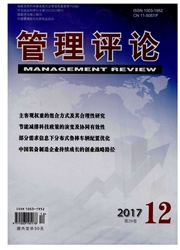

 中文摘要:
中文摘要:
水资源过度开发是新疆内陆河区生态环境恶化的主要原因之一,农业用水量占新疆经济社会总用水量的94.8%,大量开发土地和增加灌溉面积导致新疆内陆河区生态用水被农业用水长期无偿挤占,因此,减少农业用水量、增加生态用水量是新疆内陆河区域在今后一段时期内面临的严峻课题。本文分别建立完全信息静态和动态博弈模型、演化博弈模型,研究农业用水户和地州政府在新疆生态用水保障与管理中的策略。结果表明,为了实现内陆河区经济社会一水资源一生态协调发展的理想均衡状态,地州政府需要加大对农业超额用水户的惩罚力度,鼓励研发更先进的灌溉节水技术;同时,自治区政府要给予严格控制生态用水总量的地州政府政策激励,引导地州政府之间加强区域联防合作。本文的研究能为新疆地区政府部门建立科学有效的生态用水保障与管理机制提供决策参考,同时也为我国干旱半干旱地区构建生态用水治理体系提供借鉴。
 英文摘要:
英文摘要:
Over exploitation of water resources is one of the main reasons for the deterioration of ecological environment in inland region. As irrigated area expands and raw land gets over developed, more and more ecological water is being persistently occupied at no cost for agricultural use. Therefore, a pressing task for Xinjiang inland regions is to reduce the amount of agricultural water and increase the eco- logical water. This paper studies Xinjiang ecological water by using a game theory model and researches the strategies of farmers and local governments from different perspectives. The results show that local governments should inflict more serious punishment on farmers who use too much ecological water and develop better water-saving technologies; the autonomous region government should give some prefer- ential policies to local governments who don' t squeeze ecological water resources and promote mutual cooperation between local govern- ments, thus laying a solid foundation for a more sustainable use of ecological water. The research of this paper can provide a reference for the local governments of Xinjiang to establish a scientific and effective water protection and management mechanism, and give some ideas for the study of ecological water protection in arid and semiarid regions of China.
 同期刊论文项目
同期刊论文项目
 同项目期刊论文
同项目期刊论文
 期刊信息
期刊信息
